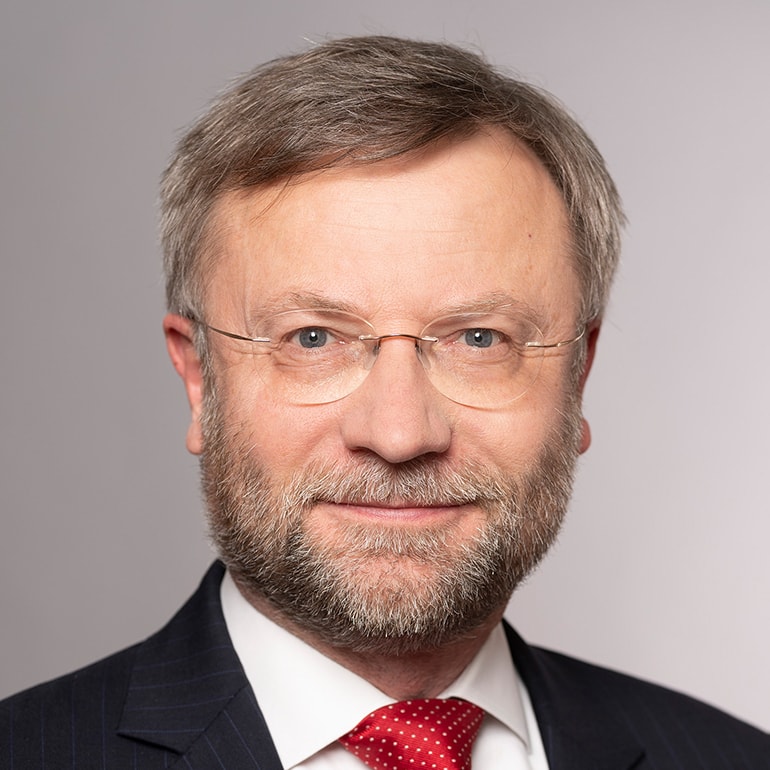21.10.2022
ECJ Advocate General: Competition authorities may take action against mergers even if notification thresholds are not met

The European Commission ("Commission") and EU Member States may take action against a concentration even if its implementation is permitted without prior merger control proceedings. This is the view of Advocate General Kokott in her Opinion of 13 October 2022 in the Towercast case (C-449/21). Should the ECJ follow the Opinion, this would mean that the Commission and national competition authorities of the 27 Member States can intervene against anti-competitive mergers even if the turnover of one of the undertakings concerned is low, i.e. neither the notification thresholds of the European Merger Regulation ("EUMR") nor those of a Member State law are met. For at least two reasons the Advocate General's view is highly relevant to non-notifiable cases where the concentration would strengthen a dominant position. First, on this basis, authorities could take measures against transactions that raise competition concerns (such as "killer acquisitions") even if the transaction does not fall under the merger control rules. Second, this increases uncertainty for the merging parties as to whether and for how long their transaction, which is not subject to a notification requirement, will be taken up by the authorities.
Concentration which may have effects in the European Union require clearance by one or more competition authorities in Europe before they are implemented if certain thresholds are exceeded: the EUMR links them to turnover, the German law to turnover but also to the value of a transaction (more than EUR 400 million consideration), the Spanish law, for example, also to turnover in combination with market shares. The requirement to subject a concentration to an approval procedure prior to its implementation (ex ante control) has the advantage for society that harm to competition can be avoided; for the parties to the concentration the advantage is legal certainty. But even if companies are not under an obligation to notify, they must know that they may face other proceedings that are in place to protect competition; cartel authorities can also intervene below notification thresholds. In Germany this is possible, for example, in the case of the establishment and operation of joint ventures that are not subject to a notification obligation. If the shareholders are competitors, they are not allowed to coordinate in a way that falls foul of the cartel prohibition, be it through a joint venture or otherwise. Another example is the rather new practice of EU Member State authorities to submit mergers that do not meet the EUMR thresholds to the Commission for review under Article 22 EUMR. This practice has recently been approved by the General Court of the European Union; an appeal to the European Court of Justice ("ECJ") is pending. The opinion of Advocate General Kokott now means that companies must also expect proceedings by cartel authorities if neither a notification threshold has been exceeded nor a Member State requests an examination by the Commission. Intervention by the authorities would be permissible before and also after the completion of a merger.
On the French market for terrestrial television broadcasting, TDF had a legal monopoly until 2004. Then the market was liberalised. In recent years, there has been a strong concentration of the market, so that only three companies are still active there: TDF (which had by far the largest market share), Itas and Towercast. TDF acquired Itas. This concentration required clearance neither under French merger control law nor under the EUMR. Towercast lodged a complaint against the concentration with the French Competition Authority. The competition authority rejected the complaint on the grounds that although TDF held a dominant position, it could not use the prohibition of abuse of a dominant position (Article 102 TFEU) as a basis for intervention because the EUMR excluded the application of the prohibition of abuse to the concentration. The situation would have been different if there was anti-competitive behaviour distinct from the concentration, but that was not the case here. Towercast appealed to a French appellate court, which referred to the ECJ under Article 267 TFEU the question of whether a concentration could constitute an abuse of a dominant position prohibited by Article 102 TFEU if it did not exceed the turnover thresholds required for the Commission to have jurisdiction, if it was also below the thresholds for mandatory ex ante control provided for by national law and, finally, did not give rise to a referral to the Commission under Article 22 EUMR. The Advocate General affirmed this.
The Advocate General can point to the ECJ judgment in the Continental Can case in support of her view. There, the ECJ had ruled that it constitutes an abuse of a dominant position if an undertaking in a dominant position by way of a concentration “strengthens such position in such a way that the degree of dominance reached substantially fetters competition, i.e. that only undertakings remain in the market whose behaviour depends on the dominant one.” However, this ruling dates back to 1973, a long time before the EUMR entered into force. The EUMR was, inter alia, adopted for reasons of legal certainty; it balances the need for protection of competition on the one hand and the need for legal certainty on the other hand. If the ECJ were to follow it, the result could be considered unsatisfactory primarily with regard to legal certainty. An increase in legal certainty would be possible if legislative actions or self-binding regulations of the authorities (guidelines) were to follow. These could determine under which conditions and within which deadlines authorities take up non-notifiable mergers under Article 102 TFEU. They could also give companies the right to receive a statement from the authorities within a certain period of time as to whether concentrations are likely to be taken up, so that the period of legal uncertainty is limited for the companies. After all, this is one of the main advantages of the EUMR and also of the merger control laws of the Member States: that the procedure is strictly time-bound, i.e. the authority is forced to make a timely decision. Procedures to enforce the prohibition of abuse, on the other hand, are currently not subject to deadlines.
Should the ECJ follow the Advocate General’s opinion companies must therefore expect that their merger will be examined in accordance with Article 102 TFEU by the Commission or by national competition authorities, despite the lack of a notification requirement and even after completion. The competition authorities could issue all interim and final orders provided for under their procedural law, up to and including an order to dissolve the concentration. However, in view of the principle of proportionality, an order to dissolve the concentration would only be permissible in very exceptional cases. Behavioural remedies take precedence over structural remedies. The imposition of a fine for intentional or negligent violation of the prohibition of abuse is also possible.
For the planning of transactions, it should therefore be noted:
- First, as is the current practice, merger control clearance requirements must be examined to determine whether approvals by competition authorities are required before a transaction is implemented.
- Second: If the thresholds of the Member States' legal systems and those of the EUMR are not met, it must be taken into account that Member States may submit a request to the Commission to examine the concentration, Article 22 EUMR.
- Third: If no Member State submits an application under Art. 22 EUMR (as in the case of the question referred for a preliminary ruling), pursuant to the opinion of the Advocate General the merger can still be taken up by the Commission or the competition authorities of the Member States under Article 102 TFEU. The Advocate General’s opinion is not binding on the ECJ; the ECJ's ruling on this point is eagerly awaited.
The Advocate General can refer to the ECJ judgment in the Continental Can case in support of her view. There, the ECJ had ruled that it constitutes an abuse of a dominant position if an undertaking in a dominant position by way of a concentration “strengthens such position in such a way that the degree of dominance reached substantially fetters competition, i.e. that only undertakings remain in the market whose behaviour depends on the dominant one.” However, this ruling dates back to 1973, a long time before the EUMR entered into force. The EUMR was, inter alia, adopted for reasons of legal certainty. The Advocate General’s opinion is not binding on the ECJ. If the ECJ were to follow it, the result could be considered unsatisfactory primarily with regard to legal certainty. An increase in legal certainty would be possible if legislative actions or self-binding regulations of the authorities (guidelines) were to follow. These could determine under which conditions and within which deadlines authorities take up non-notifiable mergers under Article 102 TFEU. They could also give companies the right to receive a statement from the authorities within a certain period of time as to whether concentrations are likely to be taken up, so that the period of legal uncertainty is limited for the companies. After all, this is one of the advantages of the EUMR and also of the merger control laws of the Member States: that the procedure is strictly time-bound, i.e. the authority is forced to make a timely decision. Procedures to enforce the prohibition of abuse, on the other hand, are currently not subject to deadlines.
Should the ECJ follow the Advocate General’s opinion companies must therefore expect that their merger will be examined in accordance with Article 102 TFEU by the Commission or by national competition authorities, despite the lack of a notification requirement and even after completion. The competition authorities could issue all interim and final orders provided for under their procedural law, up to and including an order to dissolve the concentration. However, in view of the principle of proportionality, an order to dissolve the concentration would only be permissible in very exceptional cases. Behavioural remedies take precedence over structural remedies. The imposition of a fine for intentional or negligent violation of the prohibition of abuse is also possible.
For the planning of transactions, it should therefore be noted:
- First, as is the current practice, merger control clearance requirements must be examined to determine whether approvals by competition authorities are required before a transaction is implemented.
- Second: If the thresholds of the Member States' legal systems and those of the EUMR are not met, it must be taken into account that Member States may submit a request to the Commission to examine the concentration, Article 22 EUMR.
- Third: If no Member State submits an application under Art. 22 EUMR (as in the case of the question referred for a preliminary ruling), the merger can still be taken up by the Commission or the competition authorities of the Member States under Article 102 TFEU. This is the Advocate General’s opinion; the ECJ's ruling on this point is eagerly awaited.

Dr Helmut Janssen, LL.M. (King's College London)
Partner
Brussels,
Dusseldorf
helmut.janssen@luther-lawfirm.com
+32 2 627 7763 / +49 211 5660 18763 / +49 1520 16 18763

Martin Lawall, LL.M. (University of Glasgow)
Senior Associate
Brussels
martin.lawall@luther-lawfirm.com
+32 2 627 7767